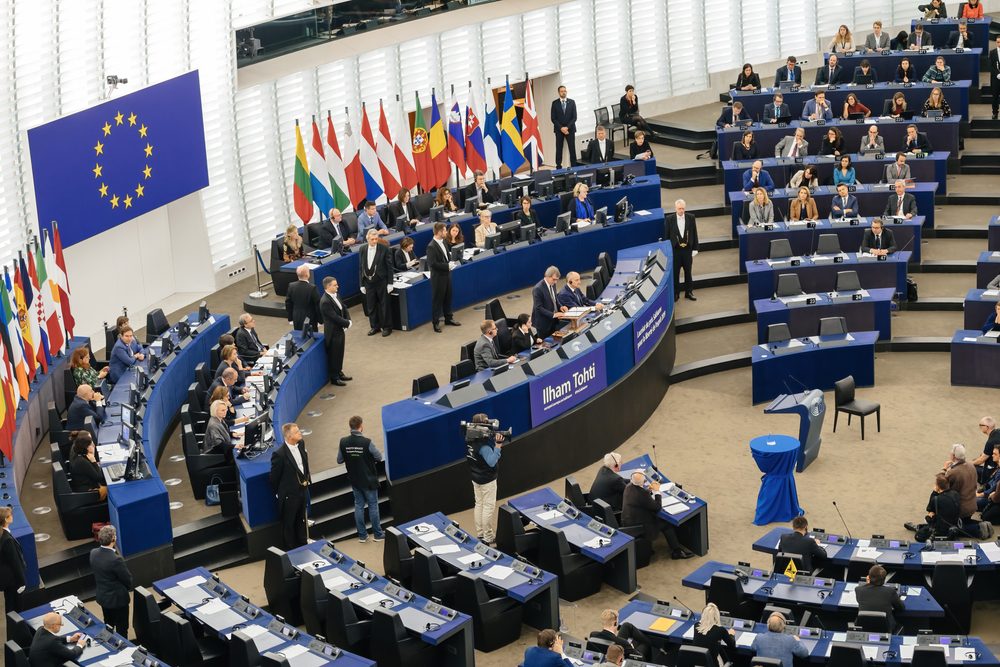
The European political Right was startled Wednesday afternoon as Finnish populists, the Finns Party, decided to apply to rejoin the ECR group, defecting from the nationalist Identity and Democracy (ID) faction within the European Parliament.
Fresh off the back of a strong performance in last weekend’s parliamentary elections and Finland’s NATO ascension, the party split from the ID group, which it joined in 2019 after belonging to the ECR group between 2014-2019. The party said to Suomen Uutiset:
The radical change in Finland’s security policy situation caused by the brutal war of aggression started by Russia has also required the Finns Party to reexamine international cooperation networks.
The party government of the Finns Party has unanimously concluded that the Finns Party must belong to a group in the EU Parliament whose member parties are united by the uncompromising defense of Western civilization and the European security policy architecture.
In the foreign and security policy program published by the Finns Party in August 2022, it was presented that Western countries must respond with effective coordinated measures to the challenge of authoritarian Russia and China. The Finns Party can best promote this goal through the EU Parliament as a member of the ECR group.
A source involved in the transition described the defection as motivated by pro-Russian posturing by the AfD and FPÖ in particular. The war in Ukraine and the risk of further Russian aggression have clarified minds within the Finns Party, which has dropped previous trepidation about joining NATO in line with a shift in public opinion.
There are fears of a “genuine radicalisation” within the Brussels and Berlin leadership of the AfD over what is perceived to be a naive pro-Russia line that would tarnish the Finns Party’s chances at power. It is understood that the Finns Party’s leadership reached the decision some time before the election on April 2nd, in the event of a coalition government. Results from Sunday’s election saw Finland become the second-largest party in a campaign dominated by migration and public spending.
The opinion is, to some extent, potentially shared by Danish and Estonian contingents within the ID group who may join the Finns Party in a similar move. The Finns Party defection points to weakening cohesion within the ID bloc ahead of the European elections next year, as politics are defined as much by geopolitics as ideology.
In a statement on Facebook, Jaak Madison of the Conservative People’s Party of Estonia (Eesti Konservatiivne Rahvaerakond) wrote on April 6th:
Yesterday, news broke that the Finns Party has changed political group in the European Parliament. Postimees also did an article about it today and asked me to comment on our plans.
I stressed that at the moment our political group, unlike other groups, has complete equality to block initiatives that do not suit us. In addition, we have an equal opportunity to have speaking time in the sessions where we have the main opportunity to present and defend our positions. In addition, I pointed out the following very important reason:
“Is it more important that we can veto a great many pro-Russian things so that they never reach the Chamber and thereby undo the work of the Russian agents?” Or is it that I feel good in the media with a clean chest, that you see I am somewhere in a more polite group?’
But the new European elections are already a year away. Until the end of this term, we will continue in the current political group, but nothing is certain about the next one (if, of course, the voters give us a mandate to be represented in the European Parliament).
The Finns Party leadership sees little benefit of remaining part of ID. Any future pro-Russian positions would potentially undermine their wishes to grow in influence.
While largely symbolic—and not changing the dynamic within Parliament—the move adds to a widening chasm between hawkish and peacenik factions and may have ramifications on the European Right in Parliament going forward. It also indicates the declining fortunes within the once mighty ID group and the considerable pressure placed on Nordic member parties to remain.
